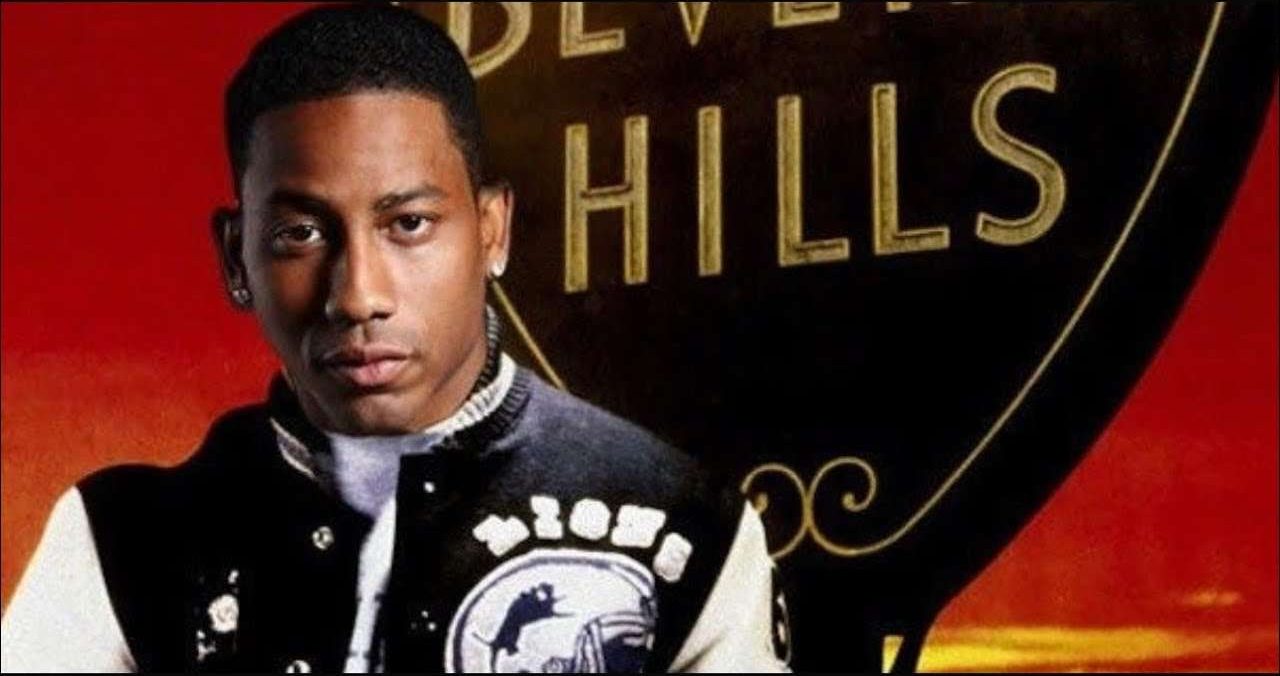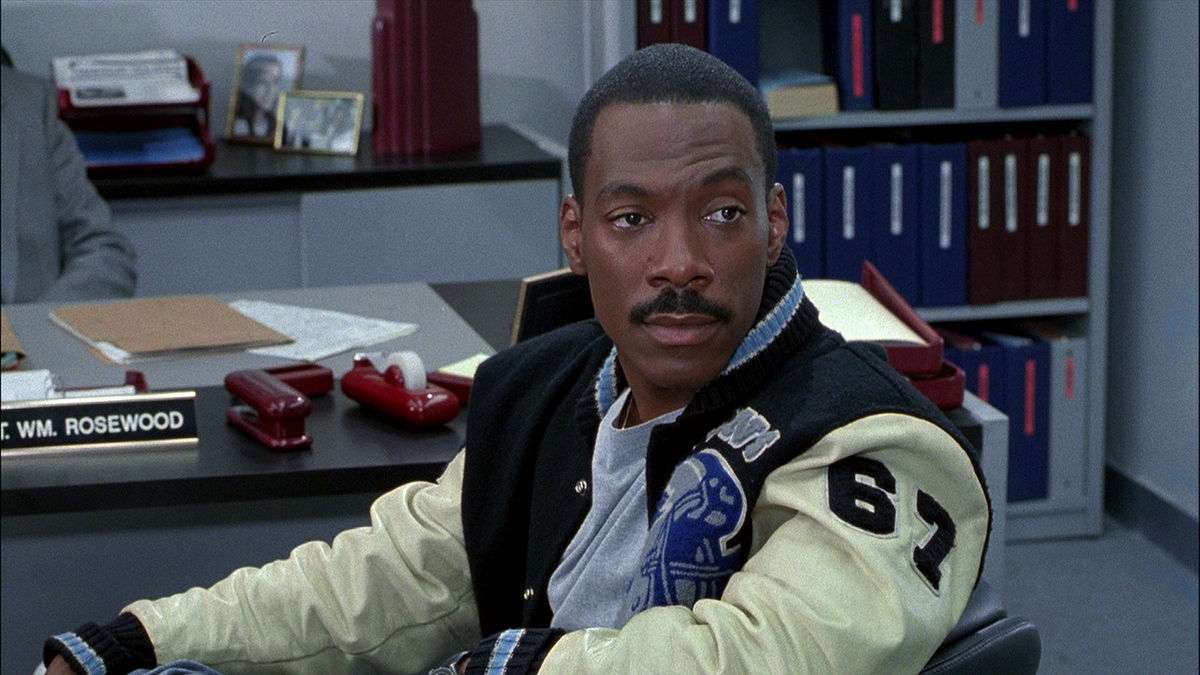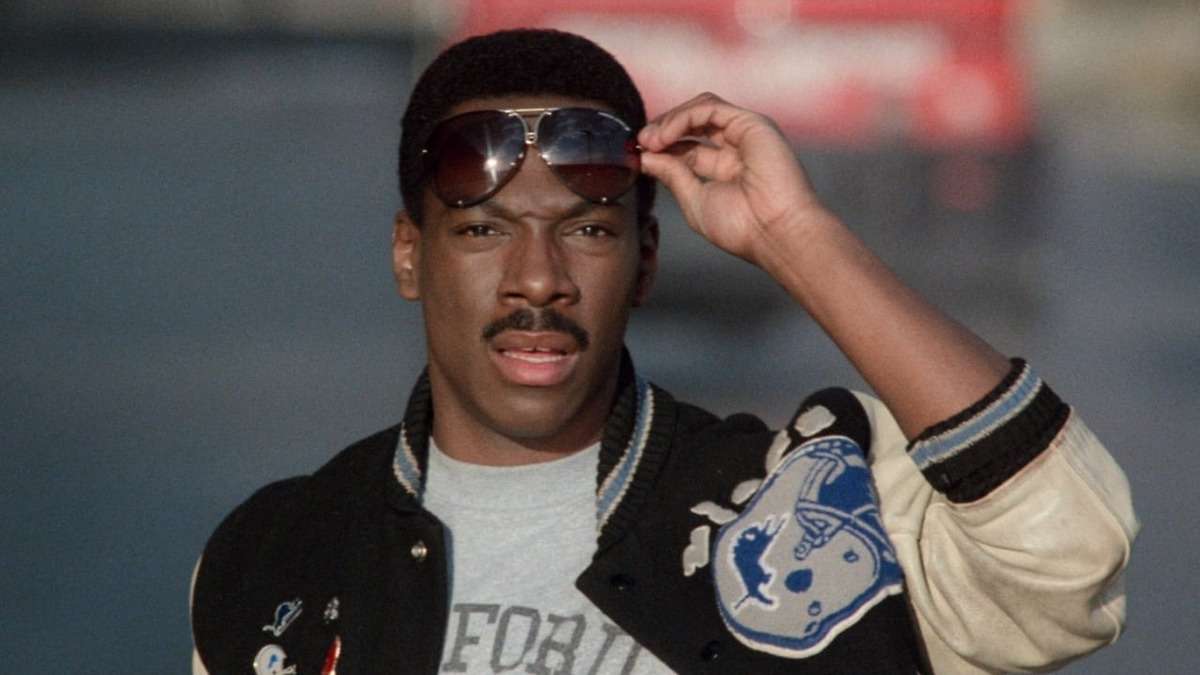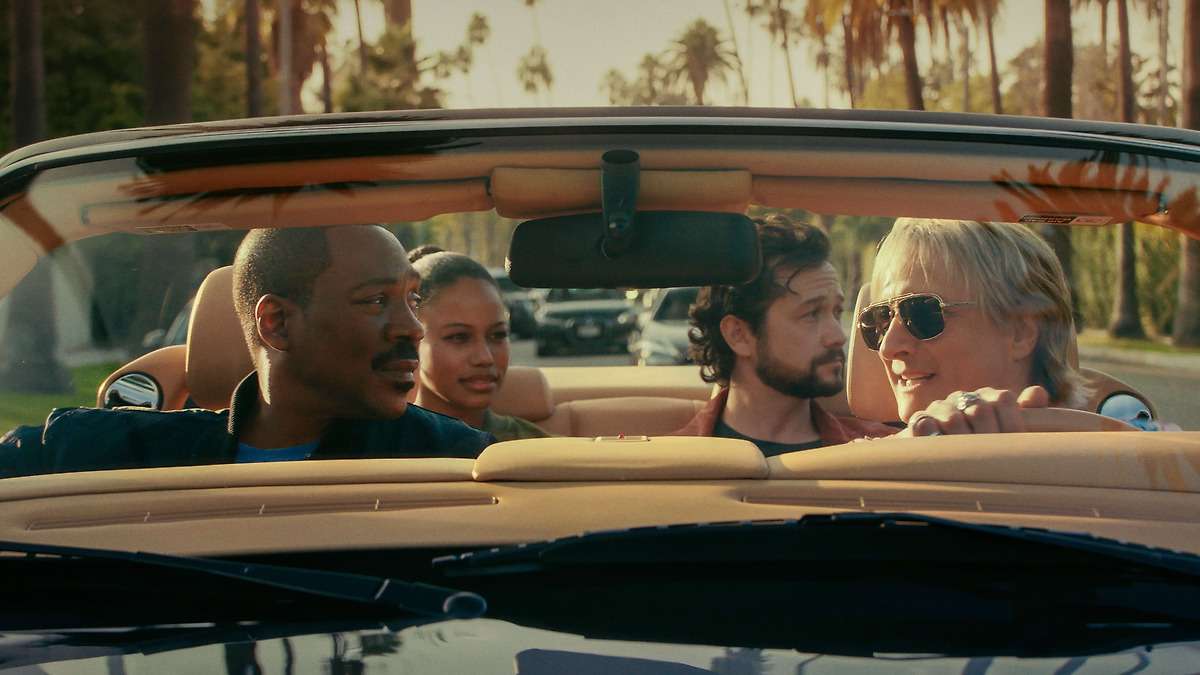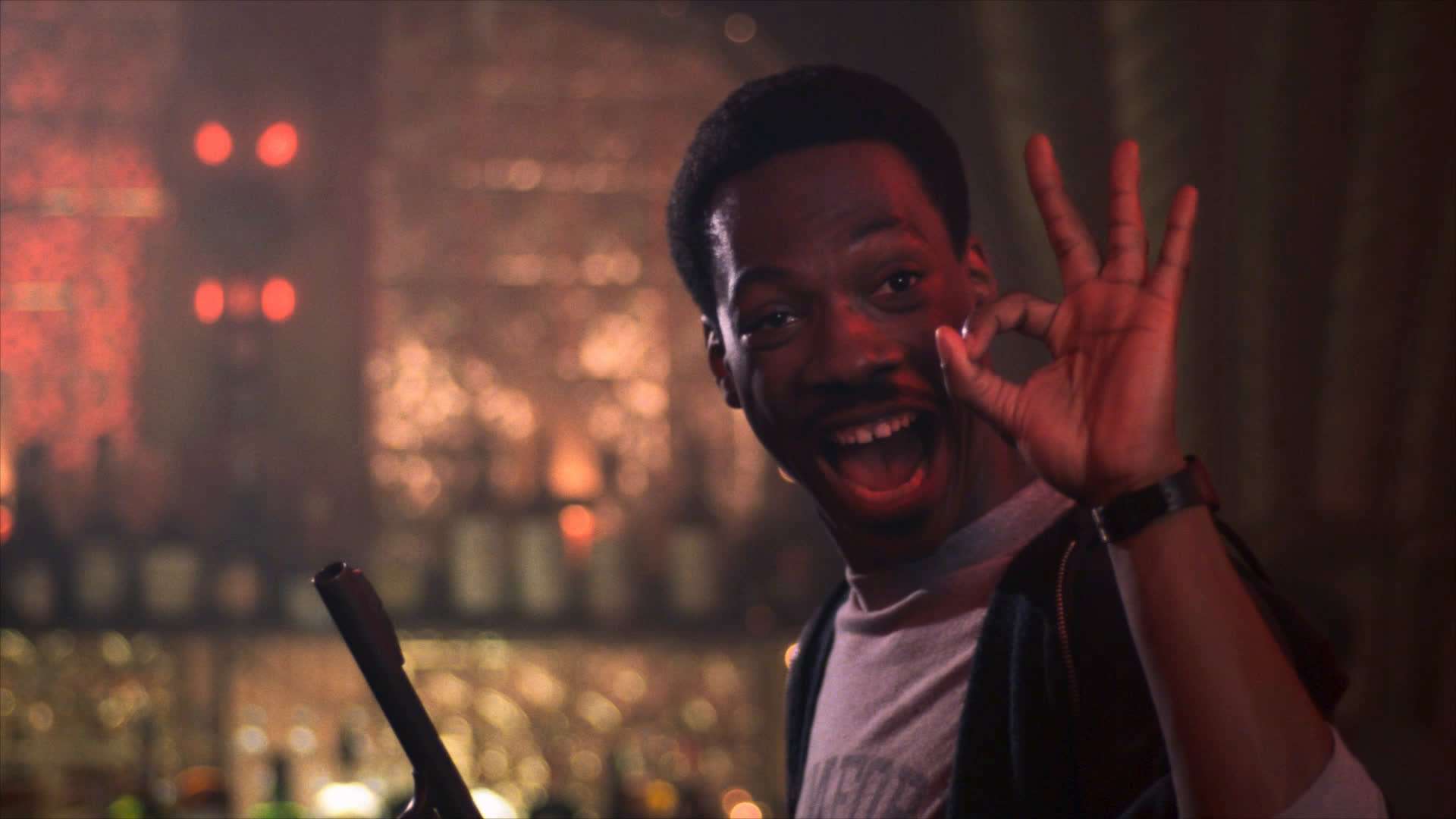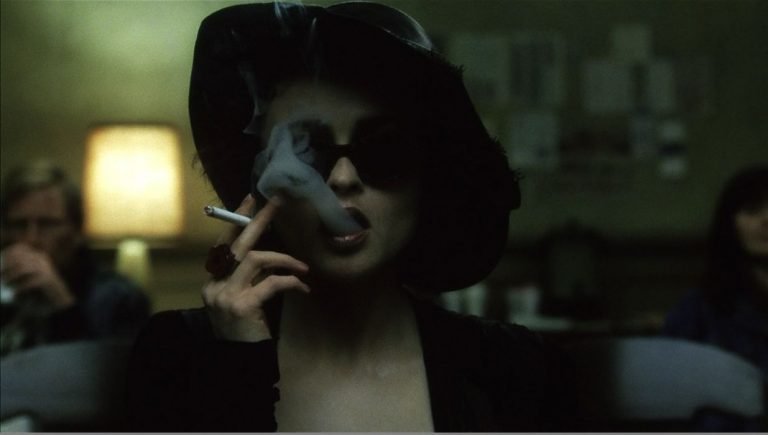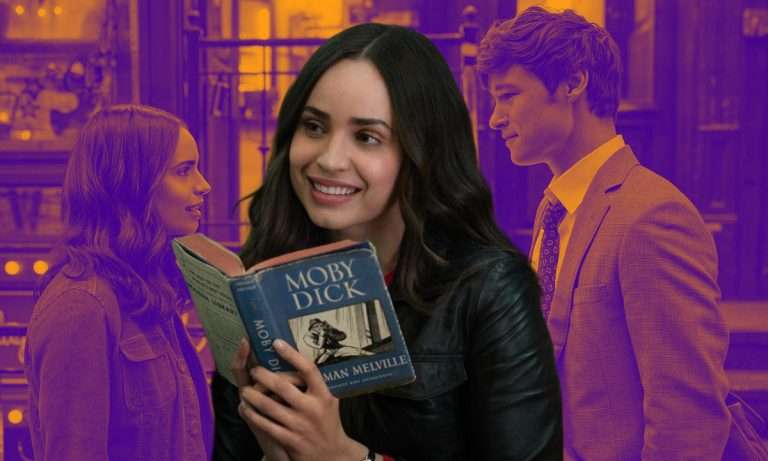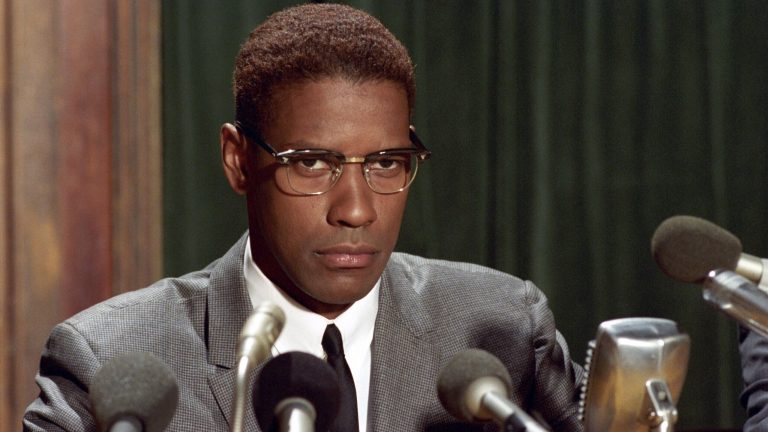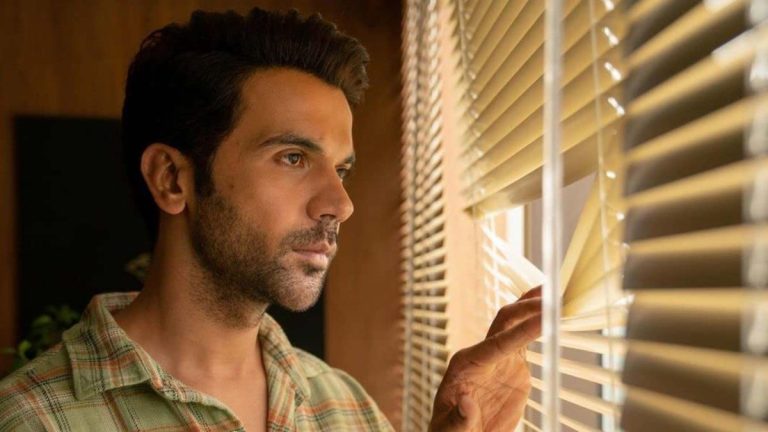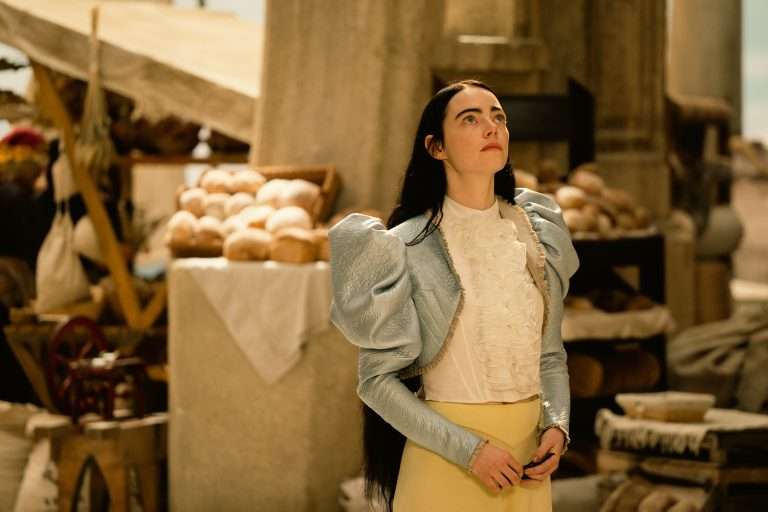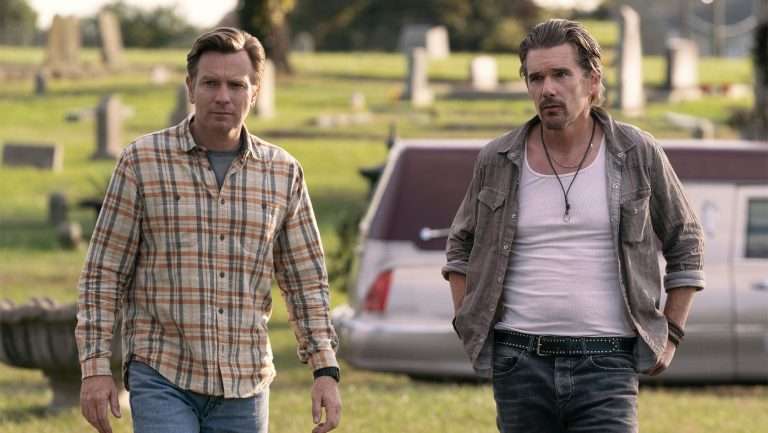“The Beverly Hills Cop” movies arose out of the popularity of its pioneering film, whose charisma and comedic timing rocketed its popularity to the stratosphere, making it enormously successful. The film’s success made Murphy an international superstar and spawned a film franchise as well as an unaired television pilot. The conceit of the original film would follow Axel Foley (Eddie Murphy), a Detroit plainclothes detective who travels to Beverly Hills, California, to investigate the murder of his best friend.
There, he tangles up and later becomes friends with Detective Taggert (John Ashton) and Detective Rosewood (Judge Reinhold), while his street-smart ways and propensity to play against the rules would be the catalyst for comedy, all carried over the sturdy shoulders of Eddie Murphy. Successive films would mostly follow the same conceit, with minor tweaks (a major one in the case of the third film in terms of tone and general filmmaking techniques).
Special Mention
Beverly Hills Cop (2013)
Director: Barry Sonnenfeld
There would be plans to continue the “Beverly Hills Cop” franchise on television, and thus a pilot was ordered. Created by Shawn Ryan (The Shield) and directed by Barry Sonnenfeld (Men in Black), the 45-minute pilot followed Aaron Foley (Brandon T. Jackson), son of Axel Foley, who would go on to Beverly Hills to investigate the operations of a drug syndicate that he had been close to busting while working undercover.
Even if the conceit is eye-rolling, Jackson as Foley was charismatic and very much carried over the same motor-mouth propensity that Murphy would popularize in the film series. The direction by Sonnenfeld ensured that the pilot episode was a zippy one, with a mostly fun tone and well-directed action set-pieces, albeit with the limitations of a procedural television series designed for CBS. However, the USP of the pilot would be the return of Eddie Murphy as Axel Foley in a guest appearance, and the chemistry between Murphy and Jackson is electric. But ironically, Murphy’s appearance apparently doomed the pilot because the test audience felt it would ensure the appearance of Axel Foley every week on their TV screens, which Murphy would never agree to.
The 45-minute pilot isn’t included in the official list because –
- It isn’t a feature, and it never aired officially (it is available to watch on YouTube as it was leaked in 2022)
- The release of the fourth film effectively erases the events of this pilot from canon, whatever that entails in this franchise.
The fascinating point is that it is still better than the third film.
Without further ado, here’s the official list ranking the four Beverly Hills Cop movies:
4. Beverly Hills Cop III (1994)
Director: John Landis
After an operation to capture a gang of counterfeiters goes wrong, Detective Axel Foley picks up the trail and returns to Beverly Hills, where he teams up with Sergeant Billy Rosewood (Judge Reinhold) to identify and stop the counterfeiting operation at a local amusement park called Wonder World. Even though it was released in 1994, this sequel feels dated, and the fact that Don Simpson and Jerry Bruckheimer aren’t producing the film shows how much the movie lacks any incentive to be violent and over-the-top.
On top of being saddled with a weak script, Murphy’s choice to tone down the gift of the gab that had so characterized Axel Foley and make him into a serious, mature individual contributes to the low energy of this sequel. An Axel Foley who is continually world-weary and takes every opportunity not to joke or react is in sharp contrast to the suddenly zany plot taking place in an amusement park. The tonal whiplash of this endeavor just results in a messy film that would stall the franchise for over 30 years.
3. Beverly Hills Cop II (1987)
Director: Tony Scott
Axel Foley heads back out to Beverly Hills to investigate the attack on Police Captain Bogomil (Ronny Cox) that led to him getting shot. He finds himself teaming up with Taggart and Rosewood against an uncooperative police department and investigating a series of robberies organized by an illegal weapons smuggler. In a way, this is the quintessential Hollywood sequel—bigger and flashier. It is not necessarily foolish but narratively useless.
Murphy, as Axel Foley, has his motormouth intact, with his propensity to improvise and fast-talk becoming more over the top. The story by Murphy and John Wachs puts the star at center stage rather than the character. Thus, any of the shades of Foley’s character, especially his serious demeanor that the first movie would take time to explore, would be foregone to make way for Murphy, the movie star, and Axel Foley, the cool Detroit detective.
It’s not a bad decision, and Murphy remains watchable, but the movie is robbed of any stakes. Tony Scott’s direction does work in giving the direction some flair, especially in terms of the action sequences, though the movie feels more at home in the MTV era of ochre hues and smoky horizons of LA. Reinhold, as Rosewood, is retrofitted with a more quirky personality that allows for a fun, dynamic shift. It doesn’t lean so far into vulgar auteurism that this movie would invariably inspire future filmmakers like Michael Bay, but definite signifiers are highlighting what’s to come.
2. Beverly Hills Cop: Axel F (2024)
Director: Mark Molloy
Thirty years after the events of the third film, Axel Foley returns to Beverly Hills from Detroit to uncover the threat delivered to his daughter, a defense prosecutor. As he investigates further, he learns of the disappearance of Billy Rosewood, now a private detective, and a team of white-masked criminals and drug dealers who might be connected to the cops as well as the cartel.
Nostalgia is not bad if one can identify the specificity of the source. This fourth feature is homaging key elements of the first movie while referencing events from the first two films and dismissing the third movie with a knowing wink. As far as legacy sequels go, it fares much better than most of the average fares precisely because the elements that worked are now repeated but are just placed within a newer context. Thus, the camaraderie between Rosewood, Taggert, and Foley is still intact; it’s just that the events force them apart, and the movie has to earn to reunite the three of them together.
Similarly, the motormouth improvisation of Foley is transplanted here, but it takes into account the aging of the character, and thus, that improvisation has mellowed somewhat and is less high-strung. But that is natural rather than intentionally induced, like in the third film. More importantly, the improvisation integrates the character of Jane, Foley’s daughter, rather seamlessly to highlight the similarities as well as the differences between the father and the daughter. The strain between the two allows Murphy to exercise his acting chops as well as delve into the serious nature of Foley that the second movie had all but excised. It allowed for the presence of an emotional core, as inconsistent as that might be.
Molloy as a first-time director is a massive gamble for the franchise, but other than a couple of CGI flubs, the action sequences are well handled, while the film’s narrative balances the personal with the plot well enough, even though it leans into predictable territory. It hits all the beats, and it hits them well, with Murphy being locked in and not phoning in the film being one of the strongest.
1. Beverly Hills Cop (1984)
Director: Martin Brest
“Beverly Hills Cop” would initially be conceptualized as a Sylvester Stallone joint before he would go on to make “Cobra” with George C. Cosmatos. The bare skeleton of the plot—of a street-smart Detroit detective as a fish-out-water in the rule-abiding, rarefied world of Beverly Hills—would have given ample space for Stallone to make an ultra-violent action thriller and given Eddie Murphy and director Martin Brest the space to craft an action comedy, coasting fully on Murphy’s charms.
Murphy being a movie star during this era is almost glaringly obvious, as “Beverly Hills Cop” is completely dependent on him, ensuring the character of Axel Foley retains the motormouth and sit-talking tendency that had been a staple throughout his comedic career. But this first installment is notable in how Murphy displays the range of Foley as a character, ensuring that he is sarcastic without being overtly goofy or childish and also believable when talking tough like a police officer symptomatic of that era.
Brest isn’t an action director, and thus, the film has to rely on Murphy and his chemistry with co-stars Ashton, Reinhold, and Ronny Cox as Captain Bogomil. The movie truly shines due to their disparate personalities clashing together and then coalescing as Taggert and Rosewood team up with the force of nature, Foley, to solve the case. The action set pieces that are present are tinged with a comedic touch, especially the final shootout sequence, which gives it a unique personality akin to a Looney Tunes cartoon.
40 years down the line, the original “Beverly Hills Cop” still stands out for being an action vehicle completely molded by the image of its central star. It’s almost as if the movie is chasing the stardom of Murphy and slowly starting to synchronize with Murphy’s raucous energy. Even as the franchise slowly restarts itself as an IP, it never forgets the central star, who is essential to the growth of the franchise. At their best, “Beverly Hills Cop” is always about Axel Foley, with his street-smart and fast-talking, and that will always remain the USP of the franchise.

